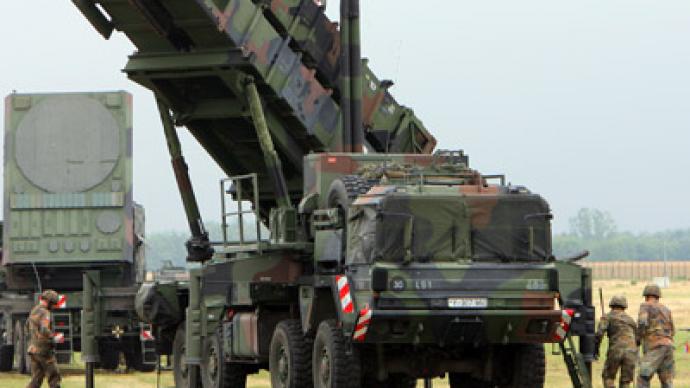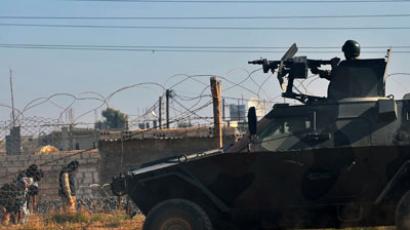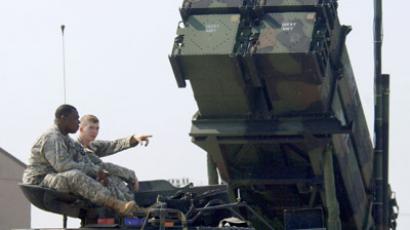Parts for Patriot missile batteries arrive in Turkey

Parts for the Patriot surface-to-air missile batteries Ankara requested from NATO have started to arrive in Turkey. They were accompanied by 39 German technicians, who will maintain the system.
“Some parts have started coming as of this morning,” the Bloomberg quotes the Turkish Ambassador to the US Namik Tan. However, he could not confirm which pieces have been received or when the batteries would become operational. Diplomat Namik Tan also restated Turkey’s official position that the Patriot batteries would only be used for self-defence and with NATO oversight."These will be used in a situation where Turkey is attacked," the diplomat was quoted by the US News & World Report. Tan did not mention if the batteries would fire across the Syrian border. The diplomat added that the Turkey is currently consulting with NATO allies about where the missile installations should be located. German advanced military personnel have also arrived in Turkey to help set up the batteries. Colonel Manfred Stange reported Tuesday that 39 staff members were heading to the south-eastern city of Kahramanmaras, about 120 kilometers (75 miles) from the Syrian border. The full Patriot missile complex is to be installed at the beginning of 2013. The batteries will be brought to Turkey from Germany by sea. Germany’s Bundestag gave its approval to the deployment on December 14, but it remains unknown when all 400 soldiers, involved in maintaining the Patriot system will arrive. The mission is time-limited to January 2014.The US military will also be involved, on Friday Secretary of Defense Leon Panetta signed an order to deploy two Patriot air-defense missile batteries to Turkey along with 400 troops."We will start to move personnel and equipment soon. We're anticipating the US systems and personnel being in place by mid-January, if all goes as planned," a Defense Department spokesperson explained to News and World Report. At the beginning of December, NATO foreign ministers agreed to the deployment of six Patriot missile batteries from Germany, Netherlands and the US on the Turkish-Syrian border. This was in response to a request for assistance from Ankara, which fears more violence could spread across the border from its war-torn neighbour, including possible use of chemical weapons. Turkey to Iran: Stop criticizing Patriot, put pressure on the Syrian regimeThe deployment of Patriot missiles has heightened tensions between Turkey and Iran, which has been supportive of the Syrian regime since the beginning of the civil unrest.The Islamic republic lashed out at Ankara arguing the move would only further aggravate the Syrian conflict.Turkish Foreign Minister Ahmet Davutoglu replied to Tehran Tuesday that “instead of criticizing the (Patriot) system’, it should “send a clear message” to Syria’s regime.“Iran should say ‘stop’ to the Syrian regime that has been continuously oppressing its own people and provoking Turkey through border violations,” AFP cited the official.Over the weekend Iran’s President Ahmadinejad cancelled his visit to Turkey’s Anatolian province in protest at the NATO reinforcement of the Turkish-Syrian border. Iran’s Deputy Foreign Minister Hossein Amir-Abdollahian, who was in Moscow on Tuesday discuss the Syrian conflict, reiterated his country’s support for Syrian President Bashar Assad.Amir-Abdollahian said he did not believe Assad and his government were about to fall.The Islamic Republic of Iran believes that the Syrian issue can be resolved by political means, he said. Iran sees the solution in a transitional government that must be formed with the inclusion of Bashar al-Assad as the legitimate President of Syria.














